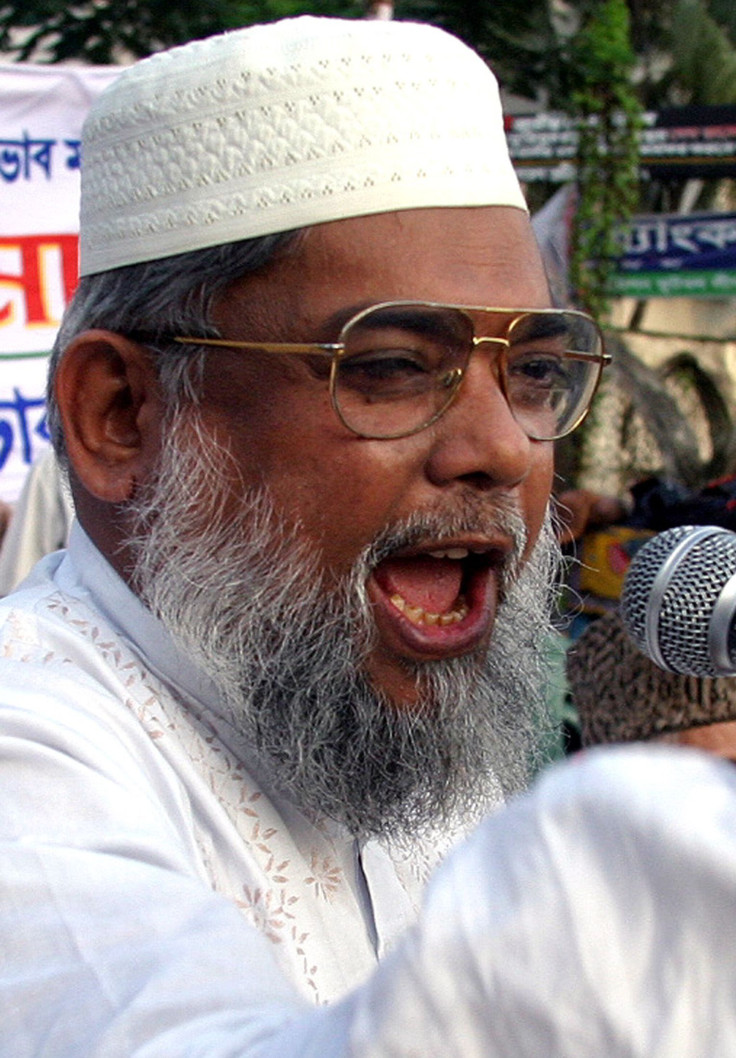Nuremberg East: Bangladesh Sentences Another Convicted War Criminal To Death

More than 40 years after it won independence from Pakistan in a bloody and destructive civil war, Bangladesh continues to deal with those it considers disloyal collaborators from that long-ago conflict. In an ongoing case that will likely have serious implications for Bangladesh’s fractious and chaotic political climate (as well as next year’s elections), a court in Dhaka has sentenced the secretary-general of Jamaat-e-Islami, the country’s leading Islamic fundamentalist party, to death by hanging for committing crimes against humanity during the 1971 war of independence.
Ali Ahsan Mohammad Mujaheed was convicted of commanding Al-Badr, a pro-Pakistan death squad militia that operated in Bangladesh (then East Pakistan) and opposed efforts by Bengali nationalists to declare independence from West Pakistan (now Pakistan). Al-Badr executed intellectual elites and pro-independence figures and also committed uncounted acts of mass murder, abduction, torture and rape, particularly against the Hindu minority community.
Mujaheed, 66, was convicted by the International Crimes Tribunal, a court established three years ago by the ruling Awami League Party to prosecute suspected war criminals. However, as Jamaat is an ally of the nation’s principal opposition party, the Bangladesh Nationalist Party, anti-government figures allege the trials and convictions are politically motivated to discredit the BNP and keep Awami in power.
“This is a gross injustice,” Mujaheed himself said in the dock after the verdict was read out, according to BDNews24. “It has been given because of my Islamic movement. … The Islamic movement will continue.” Mujaheed denied all charges and even claimed that members of Jamaat did not oppose independence for Bangladesh. Mujaheed’s sentence follows the application of a 90-year prison sentence to Ghulam Azam, a former Jamaat leader who was also convicted of various war crimes. The tribunal has thus far convicted five senior Jamaat figures.
Mujaheed’s attorneys vowed to appeal the death sentence. “With due respect to the tribunal, this is a wrong verdict,” said chief defense counsel Abdur Razzaq. “They have failed to evaluate the customary law in this regard. They have failed to evaluate the evidence.” Mujaheed’s son Ali Ahsan Mabrur claimed his father is a “victim of injustice.” “We are upset because he has been punished on the basis of some impressions and not on hard evidence,” he said.
Naturally, prosecuting attorneys were elated by the verdict. “The mass murder of our intellectuals was an unforgettable element of our Liberation War. This verdict of [a] death sentence for … Mujaheed has finally provided justice for those mass murders,” said M.K. Rahman, prosecution coordinator and additional attorney general. "Finally we can breathe easy.”
Veterans of the 1971 independence movement also expressed their satisfaction with the disposal of the case, but called for a quick execution.
“Though we are satisfied, we’ll be happy only when the hanging is carried out,” said former freedom fighter Jahir Uddin Jalal. “Jamaat must be rooted out from this land. Every war criminal must be hanged. No one will understand what kind of torture [Al-Badr] unleashed on us. They supervised horrific torture sessions in lock-ups. They put our mothers and sisters at the hands of the Punjabi-Pathan troops. Those who did not see it can never feel it. The Razakars [paramilitary forces loyal to Pakistan] would have hanged freedom fighters to death if they were in power now.”
According to reports, Mujaheed, then only in his mid-20s, took control of Al-Badr in late 1971 from founder Motiur Rahman Nizami, who is now facing similar charges. Both Mujaheed and Nizami even served as Cabinet ministers in a BNP-led coalition government from 2001 to 2006. Mujaheed served as the country’s minister for social welfare.
© Copyright IBTimes 2025. All rights reserved.





















